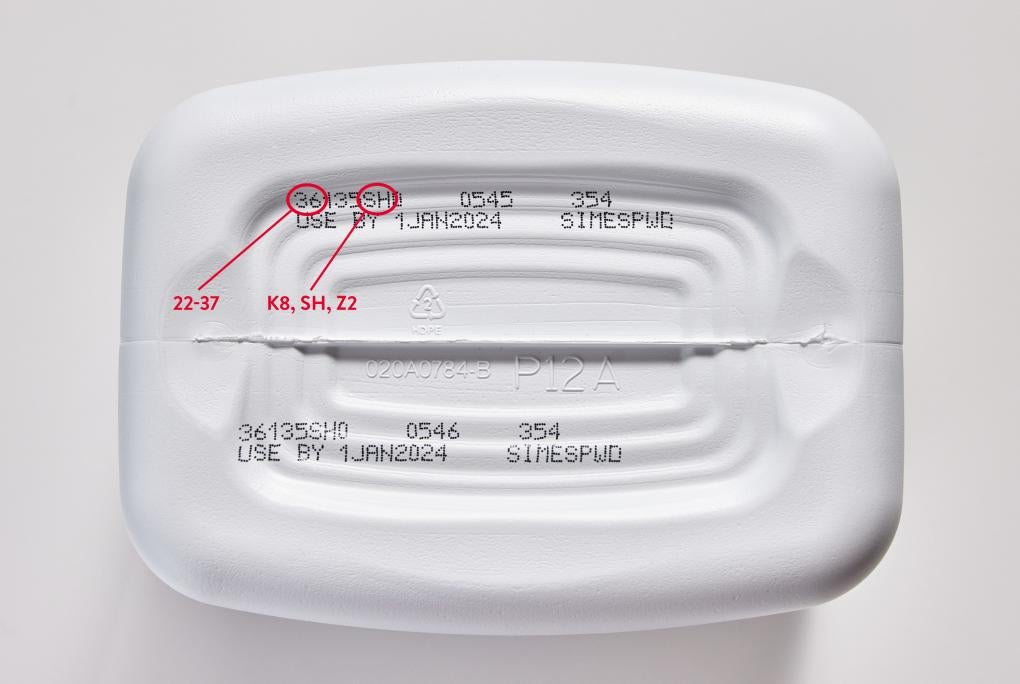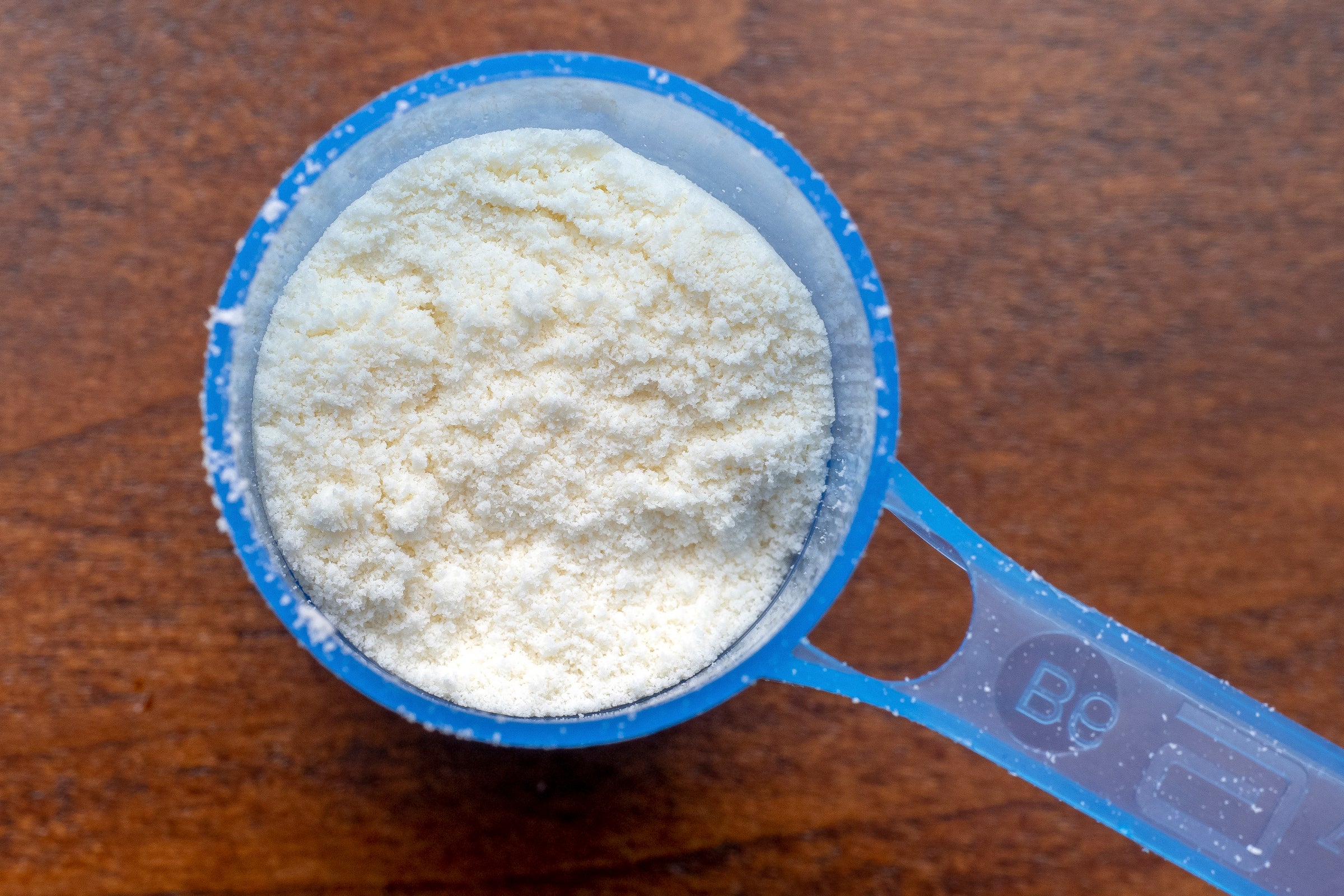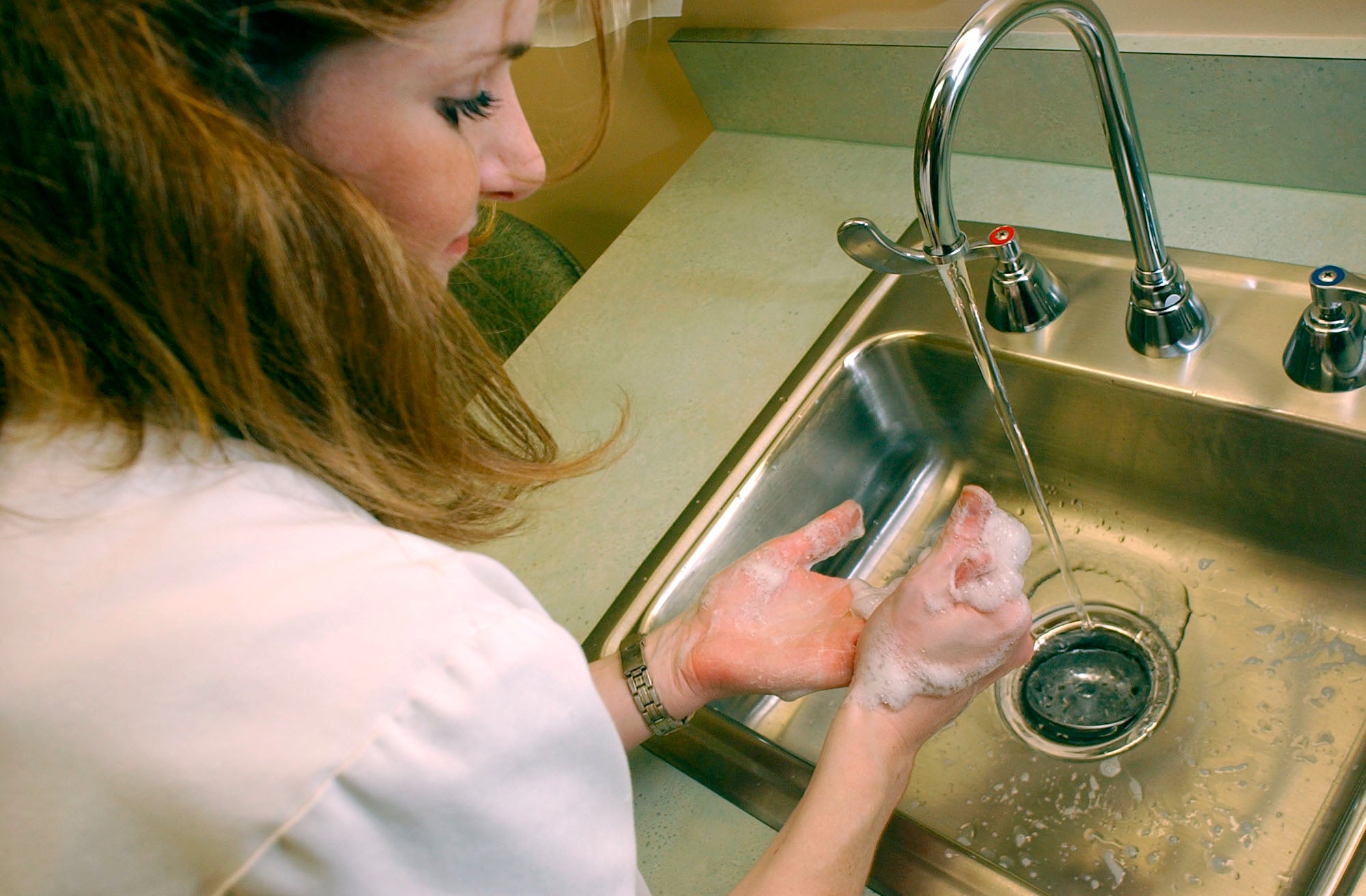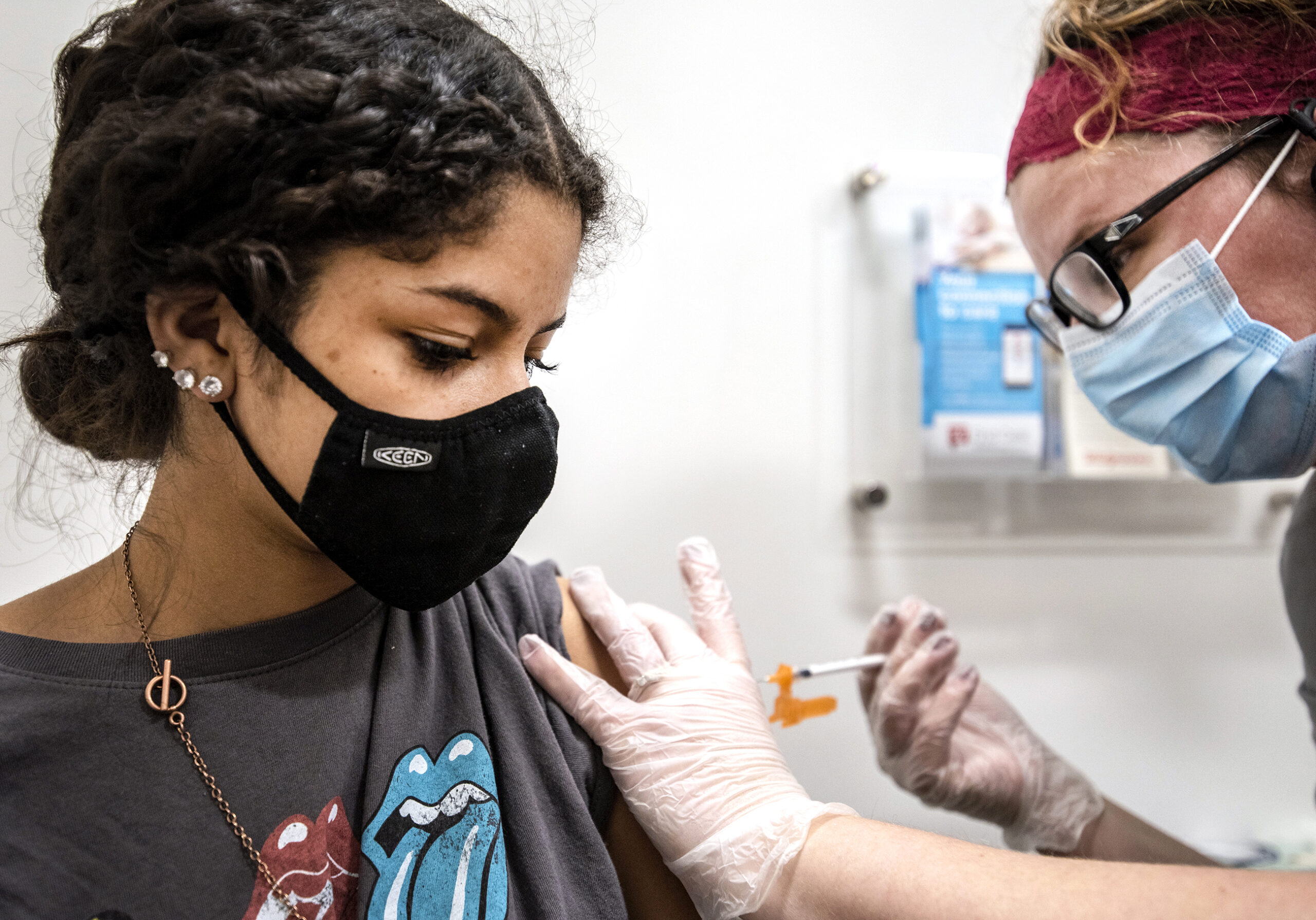The recent recall of powder formula products for babies spurred anger, concern, confusion and a frantic search for answers — and replacement supplies — for mothers in Milwaukee who relied on the products.
The voluntary recall on Feb. 17 by Abbott Nutrition included Similac, Alimentum and EleCare and was in response to reported cases of salmonella and a rare bacterial infection called Cronobacter sakazakii.
Cronobacter can cause infections in the blood and swelling in the brain and spinal lining.
Stay informed on the latest news
Sign up for WPR’s email newsletter.
Among those affected by the recall was Tiffany Brown, a mother of eight who is enrolled in Bellies and Babees, a prenatal care organization.
“I’m pissed off,” Brown said. “How long has our milk been contaminated, and we’re just finding out about it now?”
Here’s what you need to know if your formula was recalled and how you can ensure your child remains healthy and safe.
The latest developments
The Wisconsin Department of Health Services has more information on the recall and a list of formula substitutes. A March 2 news release details the latest developments on the recall.
How to check if you have a recalled product
Look for the “lot number.” This is a seven- to nine-digit number on the bottom of the container.

The formula is recalled if:
- The first two digits of the code are a number from 22 to 37.
- The code on the container contains K8, SH or Z2.
- The expiration date is 4-1-2022 (April 2022 or APR 2022) or later.
To verify the status of the lot number, you can visit SimilacRecall.com and select “Check Lot Number” or call 800-986-8540.
If the product is recalled, do not use it. You can exchange it for a refund. Those looking to exchange recalled goods should take them to the store where they originally purchased them.
Symptoms to look for
Families whose children have used the recalled formulas should watch out for the following symptoms: poor feeding, fever, crying, low energy.
If any of these symptoms are present, families should call their medical provider.
[[{“fid”:”1676616″,”view_mode”:”embed_landscape”,”fields”:{“format”:”embed_landscape”,”alignment”:”right”,”field_image_caption[und][0][value]”:”%3Cp%3EDr.%20Jasmine%20Zapata%2C%20state%20epidemiologist%20for%20maternal%20and%20child%20health%20with%20the%20Department%20of%20Health%20Services%2C%20said%20that%20families%20should%20have%20a%20%22low%20threshold%22%20for%20seeking%20medical%20care%20if%20their%20child%20consumed%20the%20formula%20that%20Abbott%20Nutrition%20voluntarily%20recalled%20on%20Feb.%2017%2C%202022.%20%3Cem%3EPhoto%20courtesy%20of%20the%20University%20of%20Wisconsin%20School%20of%20Medicine%20and%20Public%20Health%3C%2Fem%3E%3C%2Fp%3E%0A”,”field_image_caption[und][0][format]”:”full_html”,”field_file_image_alt_text[und][0][value]”:”Dr. Jasmine Zapata, state epidemiologist for maternal and child health with the Department of Health Services”,”field_file_image_title_text[und][0][value]”:”Dr. Jasmine Zapata, state epidemiologist for maternal and child health with the Department of Health Services”},”type”:”media”,”field_deltas”:{“2”:{“format”:”embed_landscape”,”alignment”:”right”,”field_image_caption[und][0][value]”:”%3Cp%3EDr.%20Jasmine%20Zapata%2C%20state%20epidemiologist%20for%20maternal%20and%20child%20health%20with%20the%20Department%20of%20Health%20Services%2C%20said%20that%20families%20should%20have%20a%20%22low%20threshold%22%20for%20seeking%20medical%20care%20if%20their%20child%20consumed%20the%20formula%20that%20Abbott%20Nutrition%20voluntarily%20recalled%20on%20Feb.%2017%2C%202022.%20%3Cem%3EPhoto%20courtesy%20of%20the%20University%20of%20Wisconsin%20School%20of%20Medicine%20and%20Public%20Health%3C%2Fem%3E%3C%2Fp%3E%0A”,”field_image_caption[und][0][format]”:”full_html”,”field_file_image_alt_text[und][0][value]”:”Dr. Jasmine Zapata, state epidemiologist for maternal and child health with the Department of Health Services”,”field_file_image_title_text[und][0][value]”:”Dr. Jasmine Zapata, state epidemiologist for maternal and child health with the Department of Health Services”}},”link_text”:false,”attributes”:{“alt”:”Dr. Jasmine Zapata, state epidemiologist for maternal and child health with the Department of Health Services”,”title”:”Dr. Jasmine Zapata, state epidemiologist for maternal and child health with the Department of Health Services”,”class”:”media-element file-embed-landscape media-wysiwyg-align-right”,”data-delta”:”2″}}]]Dr. Jasmine Zapata, state epidemiologist for maternal and child health with the Wisconsin Department of Health Services, said that families should have a “low threshold” for seeking medical care if their child consumed the recalled formula.
“If you notice anything abnormal from that happy, healthy baseline, get it checked out,” Zapata said.
Ariel Cruz, social media marketer and care coordinator with Lola’s New Beginnings, a local prenatal care agency, said that her organization has been recommending the Wisconsin MyWIC app to mothers. The app has information for users on what alternatives they can purchase.
WIC stands for the federal Women, Infants and Children Program, which funds supplemental foods, health care referrals and nutrition education for low-income pregnant and postpartum women.
What if I have more questions?
Katy Murphy, WIC director at Sixteenth Street Community Health Centers, said in an email that families should call their WIC representative for support services.
Murphy also recommended that families with questions who are not enrolled in WIC call the Milwaukee Health Department hotline at 414-286-6800.
Food pantries may also be able to help those looking for formula. She recommended calling 2-1-1, a local social services hotline, to find options.
WIC is also providing support for breastfeeding services during the recall as an alternative to formula feeding. You can contact a local WIC office for support services.
Milwaukee mothers react
Brown said that when she got the call about the recalled formula, she checked every can in the house. When she went to verify the lot numbers, she found cans she got in December had been recalled.
Her son, born in November 2021, had trouble eating for months. Having raised children before, she didn’t know why he was being such a fussy eater. Though this fussiness wasn’t conclusively linked to the formula, she said she isn’t going to be switching back to the powdered milk.
“It’s a very scary situation,” Brown said. “I’ve never had this issue before.”
Brown has been going into her own pockets for replacements, paying for 10 bottles of liquid formula each week that cost her about $105 from the grocery store. The liquid formula doesn’t last as long, she said, and is more difficult to keep in stock.
“For the safety of my son, I’m willing to spend that type of money,” Brown said.
Vanessa Vasquez, a mother on Milwaukee’s South Side, found out she had a can of recalled formula after taking her baby to the pediatrician because he refused to eat.
When the pediatrician switched her to a new formula, Vasquez had to go to five different stores to find a single can of it. Her son now avoids milk entirely, and she’s had to find new ways to get him the nutrients such as smoothies and mixing it with baby food.
“It’s been a huge setback,” Vasquez said.
For another mother, the recall has been a learning experience. Elizabeth Deja, who has a 9-month-old child, noticed that her baby was vomiting more and having trouble keeping food down.
Shortly after, she heard about the formula recall on the news. Her first call was to Bellies and Babees to get guidance.
“I was nervous,” Deja said. “I was like: Well, if I keep giving it to her, it’s just going to keep harming her … She went through two cans already, so how much more is her body going to take? Is she going to keep acting different? There were a lot of things going through my head.”
Deja took her daughter to the doctor, who said the problems were likely not related to the formula recall. As a first-time mom, Deja said that she often second-guesses her intuition and questions everything. Her advice to others: advocate for yourself and your kids.
“You’ve got to believe in yourself and have that motherly instinct,” Deja said.
Teresa De La Garza, program director for Bellies and Babees, said that mothers should stay educated on the topic and pay close attention to their children.
“My advice is for them to be in tune with their baby,” De La Garza said. “If Elizabeth wasn’t an active mother, she wouldn’t have known there was an underlying issue.”
A version of this story was originally published by Milwaukee Neighborhood News Service. The nonprofit Wisconsin Center for Investigative Journalism (wisconsinwatch.org) collaborates with Wisconsin Public Radio, PBS Wisconsin, other news media and the UW-Madison School of Journalism and Mass Communication. All works created, published, posted or disseminated by the Center do not necessarily reflect the views or opinions of UW-Madison or any of its affiliates.





